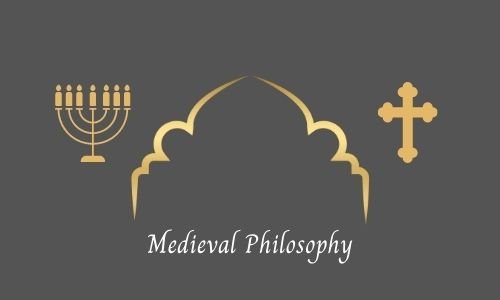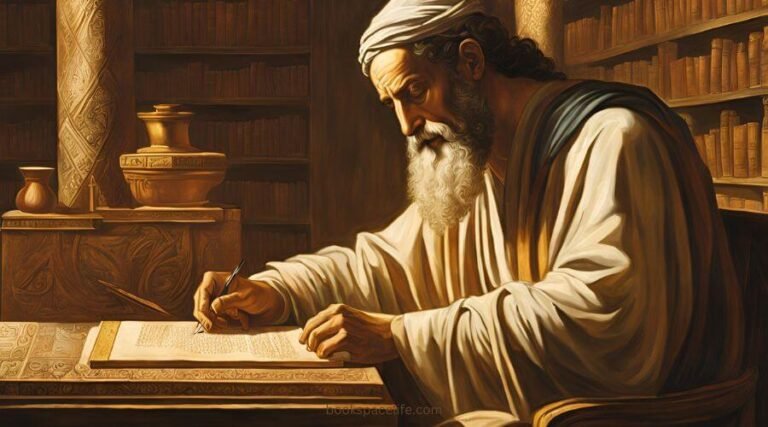Philo of Alexandria
Ibn Arabi : The Philosopher-Mystic Who Bridged Divine and Human
Muhyiddin Ibn Arabi (1165–1240 CE), often called “The Greatest Master” (al-Shaykh al-Akbar), was a towering figure in Islamic mysticism (Sufism), philosophy, and theology during the medieval period.
Born in Murcia, Spain, Ibn Arabi’s profound intellectual and spiritual journey would go on to shape not only Islamic mysticism but also have a lasting influence on philosophy and spirituality across different cultures.
His philosophical contributions, deeply embedded in his mystical experiences, continue to resonate with contemporary thinkers and mystics worldwide.
Ibn Arabi’s synthesis of metaphysics, spirituality, and mysticism created a rich and complex body of thought that bridges the gap between the divine and the human.
His influence can be found not only in the Islamic world but also in Christian, Jewish, and Western intellectual traditions, where his ideas on unity, existence, and the nature of God continue to inspire modern thinkers, poets, and theologians.
Table of Contents
(1) Early Life and Education
Ibn Arabi was born in 1165 CE in Murcia, in the Al-Andalus region of Spain, a place where Islamic culture, philosophy, and science flourished during the medieval period.
His family background was modest, but they were highly educated, and Ibn Arabi’s early years were marked by a deep interest in the intellectual and spiritual traditions of his time.
His family eventually moved to Seville, a significant cultural and intellectual center of Andalusia, where Ibn Arabi’s education would take full form.
Ibn Arabi began his studies under the tutelage of local scholars in Andalusia, where he was exposed to the classical Islamic disciplines: theology, law, grammar, poetry, and Sufism.
He also developed a deep understanding of philosophy, particularly Aristotelian logic and the teachings of earlier Muslim philosophers like Ibn Sina (Avicenna) and Al-Farabi.
However, his true spiritual and philosophical awakening came not just from books but from his mystical experiences.
At the age of 16, Ibn Arabi had a vision that set the stage for his mystical and philosophical journey.
He would later describe this experience as a direct encounter with the Divine Presence—a moment of revelation that would influence his entire worldview.
This vision marked the beginning of his deep commitment to Sufism, the Islamic tradition of mysticism, which emphasizes the direct experience of God through personal union and spiritual enlightenment.
(2) Travels and Mystical Experiences
Ibn Arabi’s travels played an essential role in shaping his philosophical and spiritual journey. By the age of 30, Ibn Arabi had already begun traveling extensively, moving through regions of North Africa, the Middle East, and Anatolia.
These journeys were not just physical but spiritual, allowing him to meet a variety of Sufi masters, scholars, and mystics, all of whom contributed to his evolving thought.
One of the most significant stops on his journey was in Damascus, where Ibn Arabi spent a significant portion of his life.
It was in Damascus that he wrote many of his most famous works, including his monumental treatise on Sufism, “Fusus al-Hikam” (The Bezels of Wisdom), and “al-Futuhat al-Makkiyya” (The Meccan Revelations). These works would become central to his intellectual legacy.
In his travels, Ibn Arabi was exposed to diverse intellectual traditions, including those of Judaism and Christianity, which played a significant role in shaping his spiritual vision.
His deep understanding of these traditions, combined with his own mystical experiences, allowed him to forge an inclusive and universal philosophy that transcended religious boundaries.
This interfaith approach made Ibn Arabi a unique figure in medieval philosophy and mysticism.
(3) Ibn Arabi’s Philosophy and Mysticism
Ibn Arabi’s philosophy is characterized by its synthesis of Islamic thought, Aristotelian logic, and mysticism.
He is often regarded as the philosopher of Unity of Being (Wahdat al-Wujud), a concept that underpins much of his mystical philosophy.
For Ibn Arabi, all of existence is interconnected, and there is no true distinction between the Creator (God) and creation. In his view, everything in the universe, from the most divine to the most mundane, is a reflection of the one Divine Reality.
The central theme of Unity of Being is the idea that God is the only true reality, and everything else is a manifestation of His divine presence.
This concept challenges the traditional distinction between the Creator and creation and encourages a view of the universe as a unified whole, where all things are reflections of the Divine.
Ibn Arabi’s philosophy of Unity of Being emphasizes the immanence of God in the world, rather than viewing God as a distant, separate entity.
Ibn Arabi also introduced the idea of the Perfect Human Being (Insan al-Kamil), which represents the highest spiritual ideal in his philosophy.
The Perfect Human Being is one who fully realizes his or her divine potential and achieves union with the Divine.
This idea is deeply tied to his mystical experiences, where the individual seeks to overcome the separation between the self and the Divine and to attain the highest level of spiritual realization.
In addition to his metaphysical ideas, Ibn Arabi’s work also addresses ethics and spiritual development.
He believed that the ultimate goal of human life is to purify the soul, transcend the ego, and become a vessel for divine light and knowledge.
This path to spiritual enlightenment requires a deep commitment to self-discipline, humility, and love for God and all of creation.
One of the most important aspects of Ibn Arabi’s mystical philosophy is his use of poetry and symbolism.
His poetry is filled with references to divine love, the beauty of the natural world, and the yearning for union with God.
His poetry reflects his belief that language and symbols can express the ineffable nature of spiritual experiences, and he used poetry as a means of sharing his insights into the divine.
(4) Influence and Impact
Ibn Arabi’s influence extends far beyond the Islamic world. His ideas had a profound impact on Sufi mysticism, especially in the areas of philosophy, spirituality, and ethics.
His concept of the Unity of Being influenced many later Sufi thinkers, including Jalal al-Din Rumi, whose poetry shares many of Ibn Arabi’s themes of divine love, unity, and the mystical quest for God.
In the Islamic world, Ibn Arabi’s works became central to the development of both theological and philosophical traditions.
His integration of mystical experience with rational thought was revolutionary, and his writings were studied by scholars of theology, philosophy, and Sufism for centuries after his death.
However, his ideas were controversial during his lifetime and were sometimes met with resistance from more orthodox factions of Islamic scholarship.
Despite this, his influence continued to grow, and his teachings became foundational for many later Sufi orders and spiritual movements.
In the Christian West, Ibn Arabi’s influence was more indirect but still significant.
His ideas on the Unity of Being and the Perfect Human Being found resonance with later Christian mystics and philosophers, particularly during the Renaissance.
Some of Ibn Arabi’s metaphysical ideas were absorbed into the work of thinkers like Giordano Bruno and Jacob Boehme, who shared his emphasis on the immanence of the divine and the interconnectedness of all things.
(5) Ibn Arabi’s Legacy
Ibn Arabi’s legacy is vast and enduring. His contributions to philosophy, theology, and mysticism have made him one of the most significant figures in the history of Islamic thought.
His ideas on the Unity of Being and the Perfect Human Being continue to influence spiritual thinkers across the world, and his poetry remains a source of inspiration for mystics and poets alike.
His work represents a bridge between rational and mystical thought, offering a vision of the world where reason and spirituality are not in conflict but are complementary paths to the same divine truth.
As such, Ibn Arabi remains a timeless figure in the history of philosophy and mysticism, offering insights that continue to guide and inspire spiritual seekers to this day.
In conclusion, Ibn Arabi’s life and work embody the richness and depth of Islamic philosophy and mysticism.
Through his synthesis of metaphysical and spiritual insights, he helped to shape the intellectual landscape of the medieval world and left a lasting impact on global spiritual traditions.
His vision of a world united by divine presence, his exploration of human potential, and his belief in the transformative power of divine love continue to resonate across cultures and generations.








